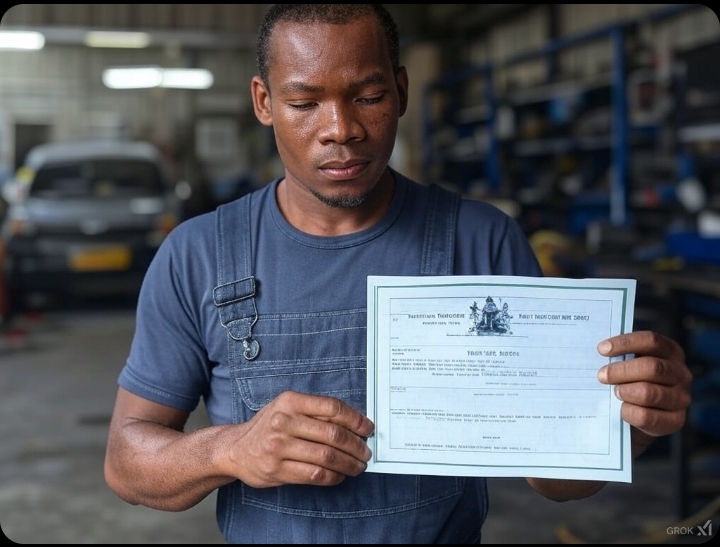10 Best Trades Certificates in South Africa for a Lucrative Career
The demand for skilled tradespeople in South Africa is consistently high. This is driven by new infrastructure projects, industrial growth, and the constant need for essential services. While many people focus on traditional university paths, vocational training and trade certificates offer a direct route to secure, well-paying jobs. This article explores the top trade certificates that promise excellent career prospects and good earning potential in the South African job market.
Choosing the right trade certificate is a smart move that can shape your whole career. It means finding skills that are in demand, understanding what industries need, and matching your interests with stable job openings that offer growth. We’ll look at which certificates are making the biggest difference right now. We’ll also explain why they are considered the best choices for anyone wanting to work in a trade.
Understanding the Value of Trade Certificates
Trade certificates provide a solid path for people who like practical, hands-on work in South Africa. Many believe only university degrees lead to success. However, trade certificates offer real economic benefits in today’s job market. They are a smart way to start a rewarding career.
The Growing Demand for Skilled Trades in South Africa
South Africa faces a big shortage of qualified tradespeople. Labor market reports show a clear need for skilled workers across many parts of the economy. Industries like mining, construction, manufacturing, and even everyday services are all looking for trained experts. This high demand means great job security for those with the right skills.
Benefits of Earning a Trades Certificates
Getting a trade certificate offers many perks. You can enter the workforce much faster than with a degree. This often means less student debt. Tradespeople also earn competitive salaries, and this pay often grows with experience. Plus, many skilled individuals can even start their own businesses, becoming their own boss.
Top 10 Trade Certificates for a Successful Career
What kind of work calls to you? South Africa offers many paths to a great future in the trades. Let’s explore ten of the most rewarding options.
1. Electrician
Electricians are always in high demand. They work on wiring, lighting, and power systems in homes, businesses, and factories. You’ll learn to install, maintain, and repair electrical equipment. With the right certification in South Africa, you can join bodies like the Electrical Contractors’ Association (ECASA). This trade offers varied career paths and a strong earning potential.
2. Plumbing
Plumbers fix and install water and drainage systems. This work is vital in every building, from small homes to large industrial sites. Certifications ensure you meet safety and health standards, which protects everyone. Good plumbers enjoy excellent job security and can earn a solid income, especially as they gain experience or specialize.
3. Fitter and Turner
Fitter and turners are key players in manufacturing and engineering. They use machines to create precise metal parts and assemble complex machinery. This trade requires a keen eye for detail and strong problem-solving skills. You’ll find job openings in many industrial settings, helping to build and maintain the machines that drive our economy.
4. Boilermaker
Boilermakers build and repair large metal structures, tanks, and pressure vessels. Their work is essential in heavy industries such as mining, construction, and power generation. This is a skilled job that demands careful attention to safety and specific fabrication techniques. Boilermakers often earn excellent wages due to their specialized abilities.
5. Welding
Welding involves joining metals using high heat. It’s a critical skill in construction, fabrication, and manufacturing across countless industries. There are many welding techniques to master, each with different uses. Certified welders are always needed to ensure structures are strong and safe, making this a stable and well-paid career.
6. Automotive Mechanic
Automotive mechanics diagnose and fix vehicle problems. With new technologies like electric vehicles, the trade is always changing, making it an exciting field. Skilled technicians are always needed to keep cars, trucks, and buses running smoothly. This demand means continuous work and opportunities for growth in an evolving sector.
7. Air Conditioning and Refrigeration Technician
These technicians install, maintain, and repair climate control systems. This work is essential in homes, offices, and industrial buildings. As climates change and more people rely on cooling, the demand for these specialists grows. They play a vital role in keeping us comfortable and preserving goods, making their skills highly valued.
8. Construction Manager/Supervisor (with a trade background)
Many successful construction managers start out with a trade qualification. This hands-on background gives them a practical edge when overseeing projects and teams. They understand the work from the ground up, which helps in managing sites and ensuring safety. Specific site certifications often complement this path, leading to leadership roles.
9. Instrumentation Technician
Instrumentation technicians control and measure industrial processes. They work with complex equipment in sectors like petrochemicals, manufacturing, and power plants. This highly specialized role requires strong technical skills to ensure systems run correctly and safely. Their expertise is crucial for efficient operations, making them very sought after.
10. Millwright
Millwrights are versatile experts who maintain and repair industrial machinery. They blend the skills of mechanics, electricians, and welders. This broad skillset makes them invaluable in manufacturing plants and factories where machines must run without interruption. Their ability to fix diverse equipment ensures steady demand for their services.
The Certification and Training Process in South Africa
Ready to start your journey into a trade? Understanding how to get certified in South Africa is your first step. It’s simpler than you might think.
Understanding SETA and Trade Test Requirements
Sector Education and Training Authorities (SETAs) guide vocational training in South Africa. They oversee learnerships and apprenticeships. The Quality Council for Trades and Occupations (QCTO) handles trade testing and certification. Passing your trade test proves you have the skills needed for your chosen profession.
Choosing the Right Training Provider
Picking a good technical college or training center is key to your success. Look for providers that are accredited and have a strong reputation. Check if their course content matches industry standards and if they offer practical, hands-on training. A good provider sets you up for a great career.
Apprenticeships and Learnerships
Apprenticeships and learnerships offer an excellent way to gain a trade certificate. These programs combine classroom learning with on-the-job training. You get to learn practical skills from experienced professionals while often earning a salary. This hands-on approach is often the quickest path to becoming a certified tradesperson.
Career Progression and Earning Potential
A trade certificate opens many doors. It offers a clear path for growth and good money in South Africa. How far can your skills take you?
Salary Expectations for Skilled Tradespeople
Salaries for skilled tradespeople in South Africa vary. They depend on your experience, specific trade, and where you work. Entry-level positions usually offer a good starting wage. As you gain more skills and years on the job, your earning potential can rise significantly. Many trades offer competitive pay that rivals some degree-level professions.
Opportunities for Advancement and Specialization
Having a trade certificate is just the beginning. You can become a master tradesperson in your field, known for top-tier skills. Some choose to specialize further, becoming experts in niche areas. Others move into supervisory or management roles, guiding teams and projects. Your practical experience gives you a strong foundation for leadership.
Entrepreneurship in the Trades Sector
One of the biggest advantages of a trade certificate is the chance to start your own business. South Africa offers many opportunities for self-employment in the trades. You can build your own client base, set your own hours, and grow your company. Many successful trade businesses began with a single skilled individual.
Conclusion
Key Takeaways and Next Steps
Skilled trades offer huge opportunities in South Africa. We’ve seen how certificates for electricians, plumbers, welders, and others lead to stable, well-paying jobs. Getting certified through SETAs and QCTO is a clear path forward. Now is the time to research specific training programs and careers that fit your goals and South Africa’s needs.
The Future of Skilled Trades Certificates in South Africa
The need for skilled trades in South Africa will only continue to grow. These jobs are crucial for our country’s development and everyday life. If you’re looking for a hands-on career with real impact and solid future prospects, the trades are waiting for you. What will you build?
Mpho Nkuna is the administrator of MecSETA, a digital platform dedicated to connecting South African youth with funded learnerships, internships, bursaries, and career development opportunities. Passionate about education and skills development



